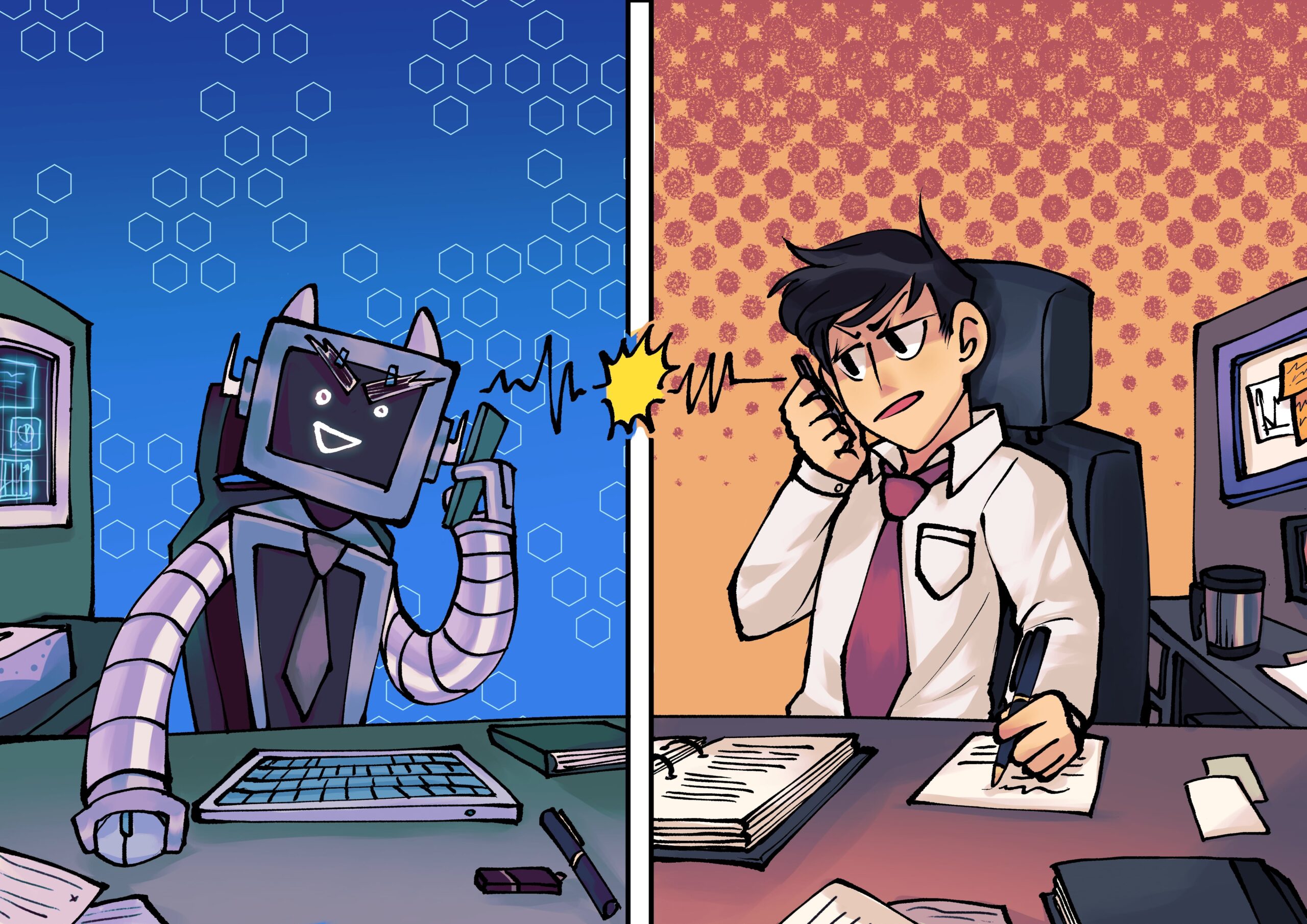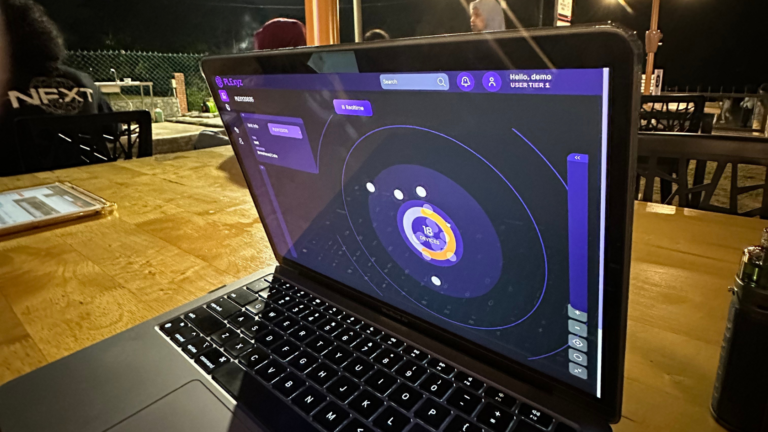by Ridzwan Razalee

A business, like any organization, has many different parts that keep the ship sailing. Having processes is essential for any organization to have long-lasting sustainability. Every business/organization has a form of Business Process Management(BPM) that covers the overview of daily workflow from A-Z. Such a landscape will need all hands on deck to produce the most efficient system.
Here are some examples of where businesses can collect and process data to improve their business:
Now, imagine having a robot to assist in these processes, which will allow efficiency and profit to increase. Robotics has assisted businesses in many industries in the past 20-30 years. From assembling automotive parts, diffusing bombs, and even collecting rocks from Mars! Robot assistance has been a part of modern civilization longer than we care to think.
However, today it’s becoming more accessible for smaller businesses/organizations to have robots as “co-workers” as technology becomes cheaper and ready for the masses.
When one thinks of robots as co-workers, we must realize it is not limited to physical-mechanical rovers or laser welding machines. “Robots” could also consist of software that will support other daily administrative tasks.
Companies should be more aware of the Robotic Process Automation (RPA) method to help optimize their Business Process Management (BPM).
What is BPM, and what it’s not?
Business Process Management is a system that covers a combination of methods that helps develop a business’s daily processes. BPM could include both system-centric or human-centric processes.
As an example, in the automotive industry, BPM would comprise processes from sales, shipment, vehicle assembly, and customer service. It is not merely a product of a task manager, whether it be a software or hardware system. Technology, task management systems, and other methods are just possible extensions of BPM.
What is RPA?
Robotic Process Automation(RPA) is a process that utilizes automation technology such as artificial intelligence and machine learning in automating repetitive tasks. In organizations, there is a lot of time-consuming work that costs a lot of human energy.
RPA seeks to fill in those gaps with as little human intervention as possible as it interacts with the task at hand. Now, RPA has a subtle difference from Digital Process Automation(DPA), where it plays a similar function. DPA mainly functions to create a better workflow, while RPA aims at automating tasks to the point of independence as though you have another “co-worker” in the room.
RPA and BPM: A Great Combination
Adding RPA and BPM together would be a favorable combination for businesses. However, change is never easy, and there’s always fear and resistance towards it. An often-cited fear for such an innovation is the redundancy of employees.
Employees should rest assured that such a tool will create new opportunities for them. In the past, we can observe how once one job becomes redundant, a new trade becomes available.
More meaningful and creative jobs have become available as the economic landscape has created more high-paying income jobs that could even be done remotely!
The marriage of the two has not just benefited employees but employers as well. Businesses with the help of RPA will not increase productivity but efficiency, transparency, and profit while reducing costs.
When high volume repetitive tasks are now taken over by “robot coworkers” via a system such as RPA, the focus, and energy, are channeled to other aspects of a business.
Examples of Tasks RPA Can Help Manage
Data Entry and Transferring Data:
Data entry is a high volume of repetitive tasks. It takes a lot of hours for a human to perform. Eventually, fatigue is a factor that kicks in for human work hours are finite even with simple tasks. Entering and transferring data is the perfect job for RPA!
An RPA bot can copy and paste customer data, for instance, from an email or online into a database, spreadsheet, or Customer Relation Management system just like a human staff. RPA can do this six times faster with accuracy.
Payroll Processing:
One of the most tedious administrative tasks is perhaps payroll processing. RPA bots can help pull out information such as the numbers of hours worked and the staff’s pay rate and placing this information into one place to create paychecks while actioning reimbursements and more. Businesses are looking to gain a lot from implementing RPA as it covers a wide range of tasks.
Many industries are going to benefit from this transition in the business environment.
RPA’s Contribution In Industries
1) Legal Field(Attorneys)- Document-Review
Searching through thousands of documents looking for specific information is an infamous struggle for attorneys in the legal field. AI robots such as the RPA system can filter data in a flash! Not only that, but it can also generate reports from the data it filters. RPA is perhaps the co-worker that every attorney has dreamed of having.
Such a task applies to other related fields as well.
2) Pharmacists
RPA implemented in pharmacies could help scan your prescription and get your medicine. RPA could potentially have access to data from hospitals and your health record to make suggestions more accurate.
Even when we give out our current symptoms at the pharmacy we tend to miss out on some information from our previous medical history that could be vital! There have been cases where a mixture of prescriptions ended fatally, as the pharmacists weren’t aware of the patient’s medical history.
3) Automotive Industry
The automotive industry is one of the oldest industries that has used robotics technology as part of its business processes. Implementation of RPA in the Automotive sector can help automate processes across manufacturing, dealership management, customer relationship, and the supply chain, to mention a few.
The automotive industry is one of the leading industries when it comes to embracing technology such as RPA. It should not come as a surprise since the sector also plays a considerable role with the development of autonomous technology. From using such technology to assemble their products and having their products run on autonomous technology as well!
At REKA
RPA is entering the landscape of BPM for many SMEs, and enterprises as the new norm. Giving them an edge over many businesses and making others wonder how they begin to implement these new processes.
Reka has worked to identify gaps in the market by creating platforms capable of performing data-driven tasks. Having worked on autonomous technology through developing an autonomous vehicle and working with automotive players such as Serv Malaysia, we are equipped to help you achieve your automation goals effectively!
Let us guide you through your “robot” coworker journey.






